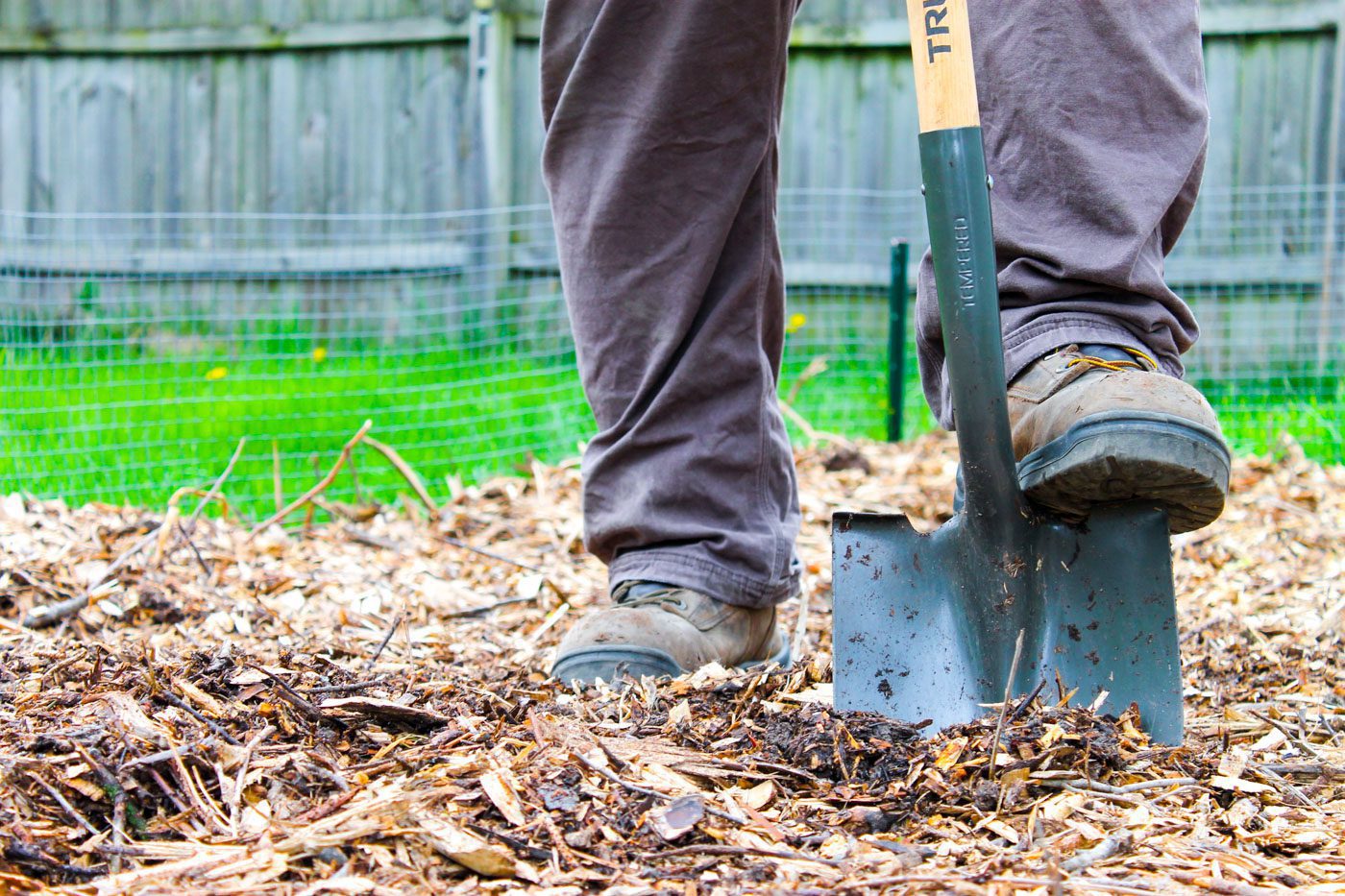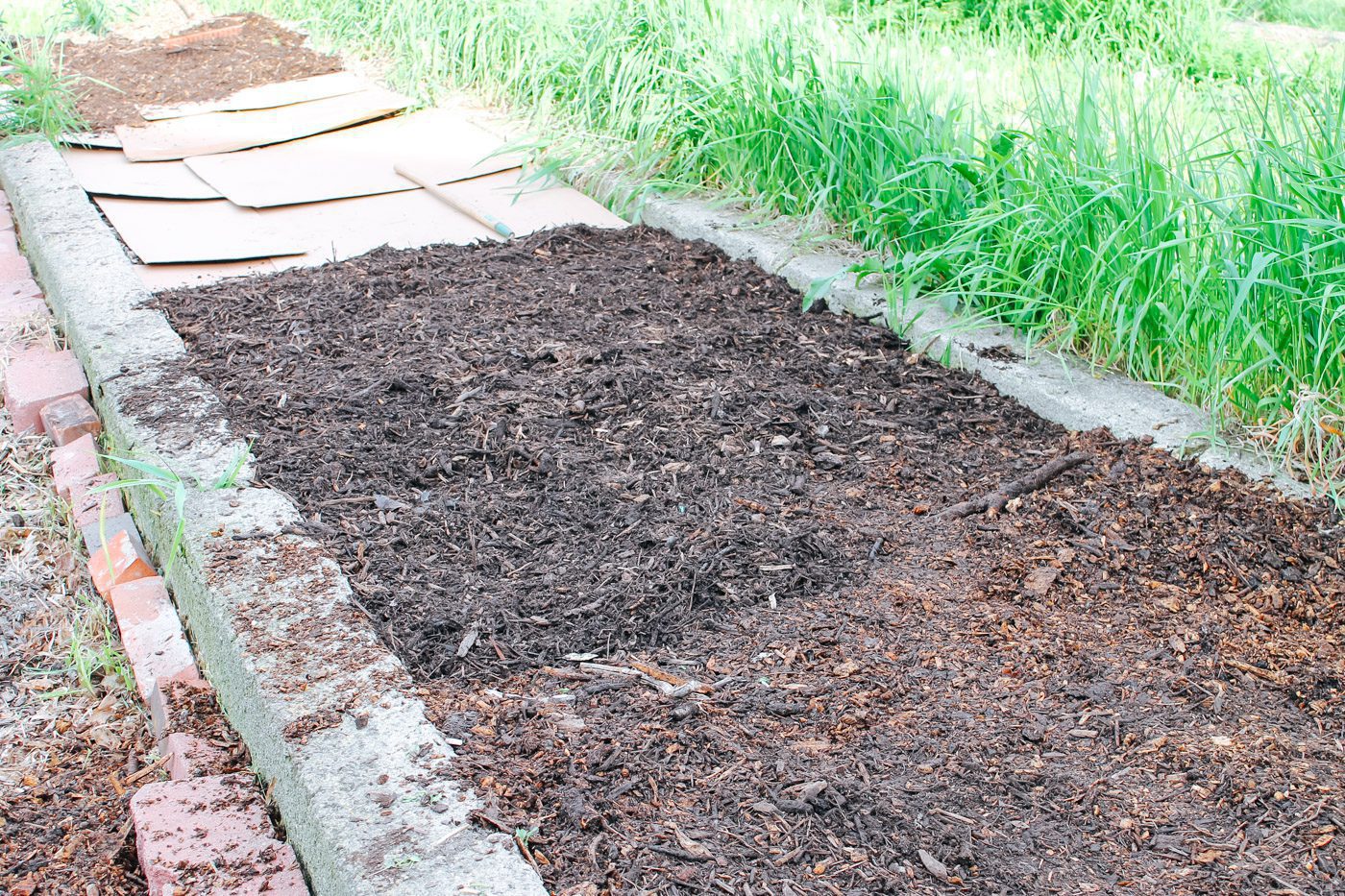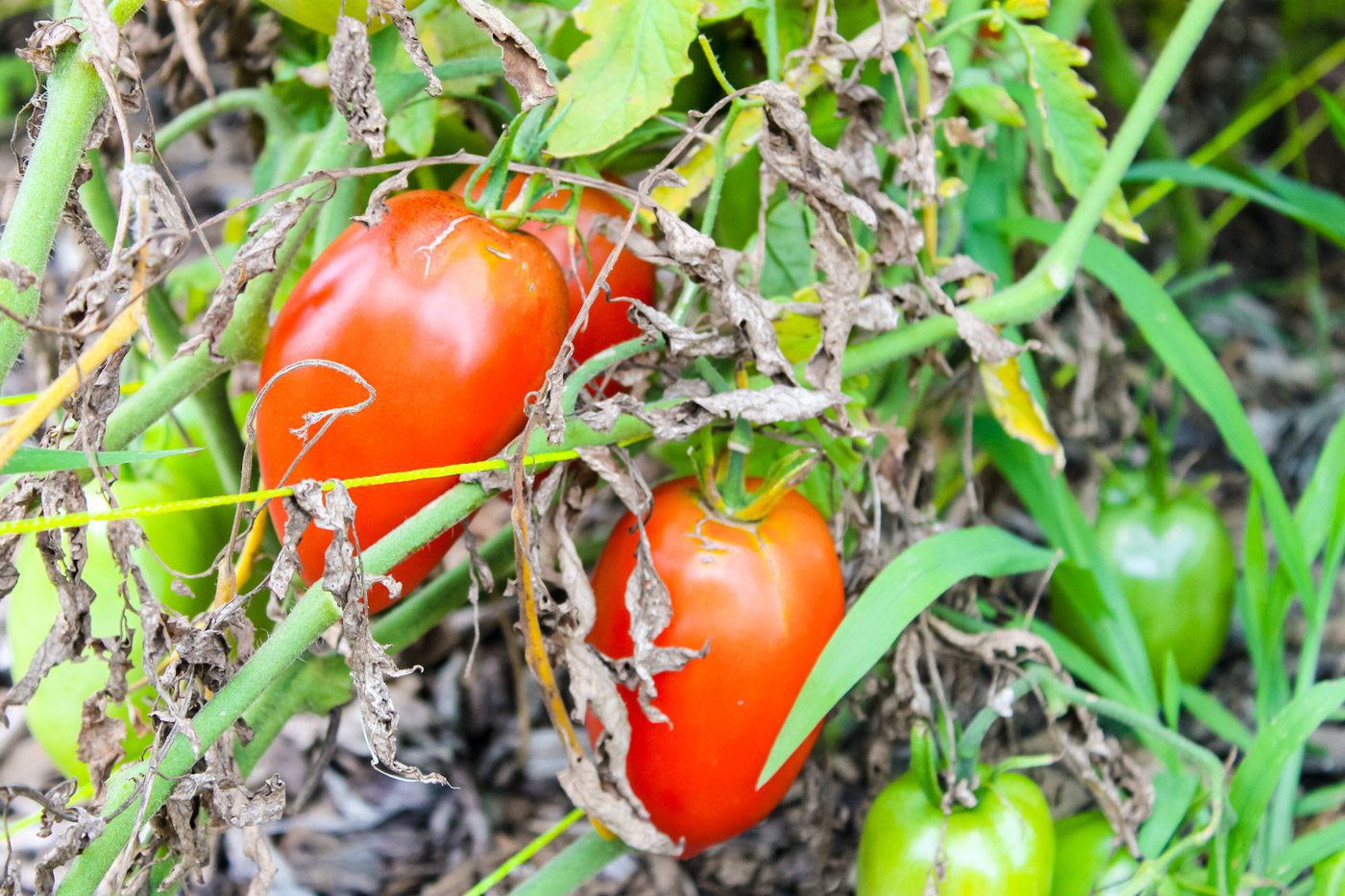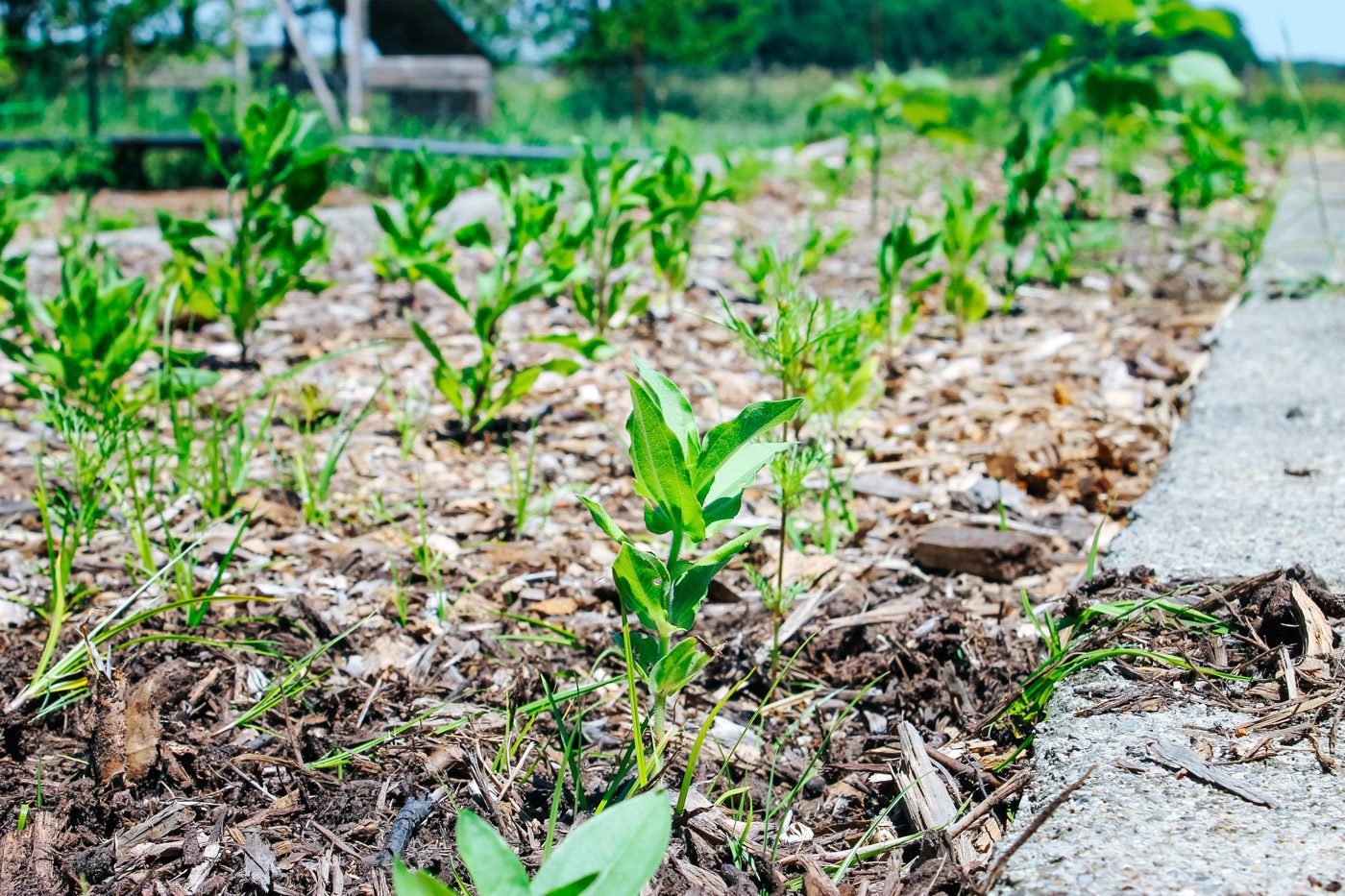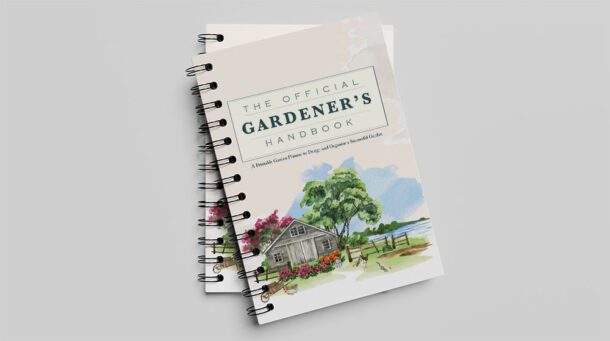Wood chips are a gardeners best friend! They help improve the soil, conserve water and reduce the amount of weeds in the garden (and who doesn’t want that?!). Learn 9 benefits of using mulch in the garden and why you might want to start a regenerative organic garden.
Tough, dry, cracked soil. That’s what we used to garden in. Years ago when we lived in the city my family spent countless hours gardening in poor soil. We knew the soil needed nutrition but how could we improve it? There were a list of solutions one could try but none of them made a huge difference. Tired and frustrated, we gave up growing vegetables in our backyard.
Fast forward to somewhere around spring 2015. Many things had changed. We escaped the hustle and bustle of the city and decided to start a homestead in the country. After watching a film about a regenerative garden method, we decided to jump into gardening again but this time we covered the ground with mulch. Following a little bit of trial and error, we learned how to create rich, nutrient dense soil, all from a decomposing matter — mulch.
As you can imagine, now that our soil is healthy, we are able to grow beautiful, delicious fruits and veggies. No longer do we fight tough soil or need to till the land. Nowadays our soil is well protected and moist.
Is a mulch garden right for you? Below learn 9 of the amazing benefits of adding wood chips to your garden.
What is Mulch Gardening?
Mulch gardening is created by adding a thick layer of mulch and/or wood chips to cover the soil. By coating the ground with mulch, your soil will be protected and retain more moisture. Over time the mulch will decay, creating a rich, nutrient dense soil. The most popular style of mulch gardening is called a Back to Eden garden. To learn more about creating a Back to Eden garden, tap this link.
Does Back to Eden Gardening Really Work?
Yes! Setting up a Back to Eden style garden is a fantastic way to grow a bounty of fruits, veggies and herbs. While there are a few pros and cons to this technique, just as there is to any gardening method, growing a regenerative organic garden has proved successful for our family for many years. No longer do we spend hours upon hours tilling the soil, weeding and fertilizing only to end up with a few basketfuls of veggies. Rather we spend our days planting, harvesting and fighting the occasional garden pest.
What Kind of Mulch is Best for Gardens?
Organic mulch is best for growing a bountiful garden. Real mulch comes from natural material such as wood chips, pine tree mulch, cedar wood mulch and more. Other types of mulch that we’ve used to improve the quality of our soil are straw (make sure it’s not treated with Grazon), decomposing leaves and grass clippings.
How to Mulch Your Garden
Mulching your garden can be done in 4 steps — locating a garden space, covering the ground with paper, adding compost and laying down mulch.
To start, select a spot for your garden. This area can be a current garden plot or a grassy place in your backyard. Next cover the chosen area with a couple layers of cardboard or builders paper. This step will help to kill any weeds your garden may have. Third, if you have access to quality compost, add 2-3 inches on top of the cardboard.
Now comes the mulch! Add a thick layer of wood chips, about 4 inches deep. Make sure you get wood from a trusted source that hasn’t been created from dyed or treated wood. To plant a seedling or small plant in your garden, pull the mulch back until you hit the soil. Add the plant directly into the soil, fill in with dirt and cover the base with mulch.
Why Mulch Your Garden?
Improving soil health, suppressing weeds and increasing crop quantity are just a few of the many reasons to add organic mulch to your garden. Read on to discover all 9 benefits of using mulch.
1. Increases Moisture in the Soil
A hefty layer of mulch helps to prevent water from evaporating which in turn keeps the soil moist for longer. This means on those dog days of summer when drought often happens, your plants will stay hydrated for longer.
2. Reduces the Amount of Weeds
Mulch is a terrific way to suppress pesky weeds! By adding a layer of mulch to your garden, you inevitably block the sunlight — no sun means no weeds. Truth be told we still have to pull weeds in our garden but much less so than with a bare ground garden.
3. Prevents Soil Erosion
Heavy rains, snow and storms are bound to happen. Mulch acts as a protective layer preventing the soil from blowing away or compacting.
4. Improves Nutrients in the Soil
As the mulch and/or wood chips decompose, they release nutrients into the soil. We have witnessed cracked, compacted soil transform into rich, dark dirt by covering the ground with mulch and allowing it to decay over a couple of years.
5. Regulates the Temperature in the Soil
During the summer the mulch will help to “shade” the soil, keeping the plants and dirt a bit cooler. On the flip side, in the winter the soil stays warmer helping to protect the plants from the freezing and thawing cycle. Mulch is perfect if you plan to use a cold frame to grow greens all throughout the winter months.
6. Conserves the Amount of Water Needed
A typical in ground garden with exposed soil requires one to water somewhat frequently, especially during the summertime. Mulch acts as a barrier to provide moisture retention, permitting you to water the garden less often.
7. Higher Yields
Healthy soil can mean a healthy plant. By adding mulch around your planted fruits and veggies, you can increase growth as well as the yield, come harvest time.
8. Creates Moist, Nutrient Dense Crops
A good gardening system contains quality soil and healthy plants. A garden covered in mulch ensures both the soil and plants will have the nutrients they need, in turn producing juicy, nutritious vegetables and fruits.
9. Saves Time
Wood chips on the garden comes with a few advantages — no tilling, less weeding, and minimal watering. All of these factors save you valuable time so that you can spend your life doing more of the things you love.
FAQ
Can I Start a Back to Eden Garden in the Spring?
Paul Gautschi recommends starting your Back to Eden garden in the fall but both my parents and my husband and I have started our Back to Eden gardens in the early spring and have had great success.
Where to Find Woodchips?
- Join a free online service like ChipDrop. This operation connects gardeners with tree trimming companies to get free mulch.
- Contact your local tree service or power company
- Purchase a wood chipper
- Get in touch with a city yard waste service. This is what my family selected to do. We contacted a neighboring city with a yard waste site that offered mulch for very little cost.
How Often Should You Mulch Garden Beds?
After the initial layer of wood chips, we add more mulch to the garden about every other year to keep the weeds at bay and the gardening soil in prime condition.
More Gardening Tutorials
How to Start a Garden for Beginners
How to Make a Shade Cover for Your Garden

